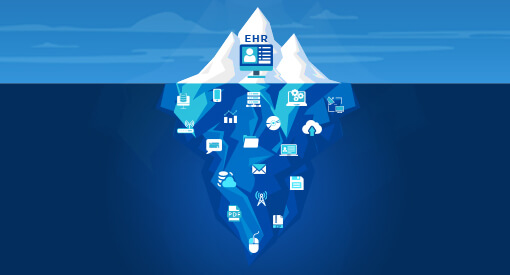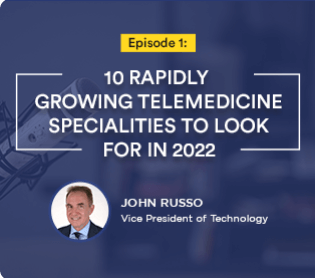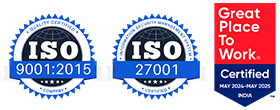What is a Practice Management System?
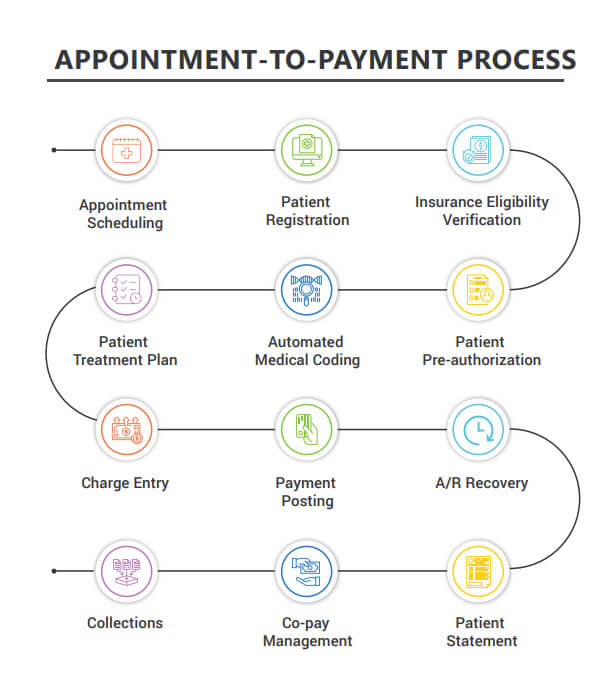
In hospitals and other healthcare environments, after a physician has hired the best staff, the next concern is to ensure that adequate care is provided. Practice management helps with this process. A practice management system is a type of healthcare software that enables effective management of daily operations like appointment scheduling, billing, and other administrative works. Common features of practice management consist of provider scheduling, medical billing, online patient portal, e-prescribing, billing, patient check-in, financial reporting, and benchmarking. Healthcare providers benefit the most if they integrate electronic health record (EHR) systems with practice management. A practice management system is a critical component for supporting a successful medical practice and achieving its goals of lowering the costs and enhancing the quality. A combination of integrated EHR and practice management software can improve your productivity and streamline your billing workflow and patient management. The design incorporating integrated EHR with practice management software would help healthcare providers to function efficiently. Medical practices with small and medium-size capacities use practice management systems to manage operations such as financial and administrative tasks, whereas some offices utilize this system for EHR integration. Integrated EHR and practice management systems can help you quickly deal with various daily functions, including entering and tracking patients, recording patient demographics, medical records management solutions, submitting insurance claims, billing procedures, and so on. Implementation of practice management and EHR systems require only a good internet connection and a simple computer network. Integrated practice, along with healthcare analytics, can bring much-needed efficiency in care delivery and patient engagement. Apart from the electronic interchange of data containing patient records, practice management software will help you manage large EHR dataset like lists of medical codes, procedures, insurance companies, medical facilities, physicians, and other healthcare providers.
Integrated Healthcare
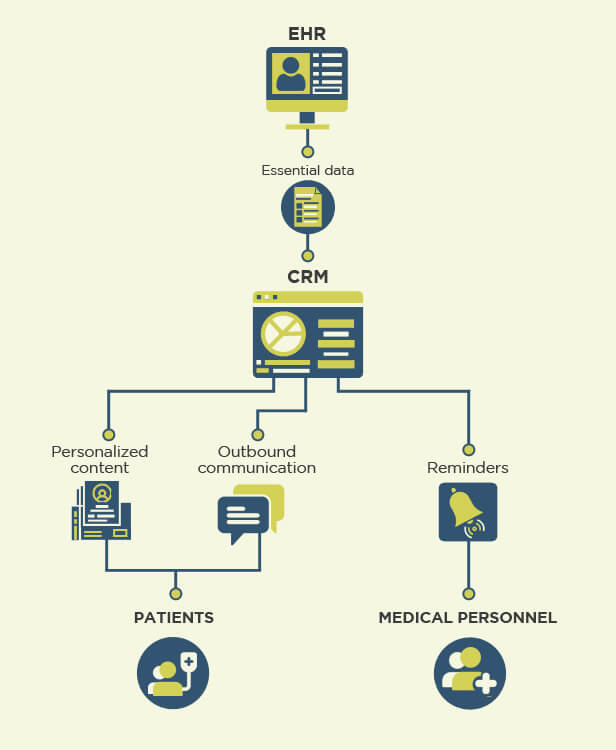
Integrated healthcare, also known as interprofessional health care, involves collaboration and communication among healthcare professionals. Integrated EHR refers to the integration and joint coordination of health and social care activities that determine patients’ needs. A patient may often require additional support and care that cannot be provided by a single hospital intervention or service. For example, in surgeries, activities will need to be planned before and after the procedure to ensure optimal success. The unique feature of integrated EHR is the sharing of health informatics related to patient care among team members. A comprehensive treatment plan is then designed to address the various needs of the patient. An integrated EHR team consists of a diverse group of healthcare providers, depending on the patient’s needs. EHR integration helps deliver coordinated care services to patients, which reduces depression symptoms, improves access to different healthcare services, increases the quality of care, and reduces healthcare costs. Integrated EHR may improve the primary care provided by electronic data exchange and gather opinions from different healthcare professionals. Sectors that may be associated to provide healthcare integration include healthcare, social care, and education. Integrated EHR with smart EHR integration API recognizes that patient needs can extend beyond healthcare, and multiple healthcare professionals may require to be involved in providing optimal treatment and designing an appropriate integrated care plan. It assists in population health management and care management, thus addressing various needs of the patients.
EHR Integration Best practices
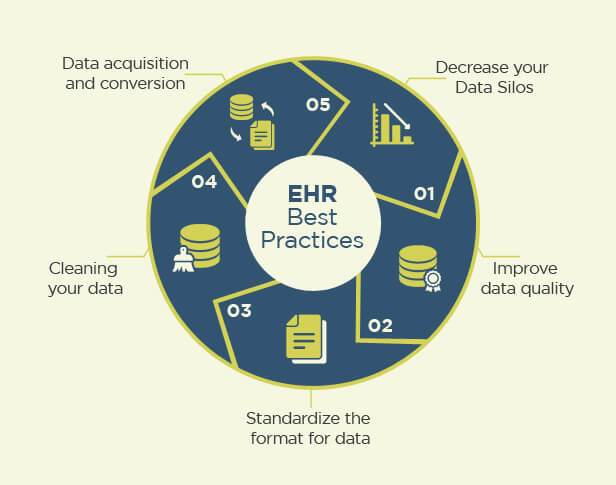
Successful integrated EHR can be challenging because it raises concerns such as high costs, adverse outcomes, and reduced efficacy. However, specific steps or practices can aid in achieving success in integrated EHR. To learn EHR and practice management integration, we need to learn about EHR best practices. Let’s have a look at EHR integration best practices.
Decrease your Data Silos: HIPAA Compliance advises to keep data from research, medical billing, and electronic health record separate. However, there may be drawbacks to this approach. Storing electronic interchange of data in silos can make integrated EHR systems challenging to deal with. Reduce the data collection in healthcare as siloed data for increasing data security. You can also opt for cloud computing in healthcare, a process that allows more agile, nimble products and services along with the proliferation of healthcare data.
Standardize the format for data: Multiple data formats for data collection in healthcare and storing information can create EHR integration complications such as EHR interoperability. EHR systems tend to support a restricted number of data formats, and if you gather data from, say two different systems, you will spend more time and resources on extract-transform-load (ETL) tools. Different EHR systems utilize different integrated EHR systems and data migration. This issue can be tackled by asking your healthcare IT vendors to agree on a standard data set and EHR interoperability system.
Improve data quality: You should apply agile algorithms that would help you detect bad values, missing data, value formats that are not standardized. These algorithms are such that they must perform a complete audit of the imported data for verifying the absence of broken transformations. Incorporating agile algorithms will serve as data integration tools to assist you with the implementation of the data management plan.
Cleaning your data: You must ensure that your EHR dataset identifies duplicate records, incomplete entries, improperly formatted files, or old data. Data cleaning will enable you to achieve successfully integrated EHR systems. You can utilize suitable data for cleaning and maintaining your data.
Data acquisition and conversion: Different electronic health records may have different schemas and documentation practices, varying from one vendor to another. This means that any data integration tools added to your EHR system may be interpreted in many ways. To avoid this problem, discuss and agree on a single data acquisition pattern. Use integrated data lakes that explore the databases, flat files (CCDA, CCLF, XML, CSV), HL7 interfaces, and other web services and extract the data from the integrated EHR system.
Benefits of EHR integrated practice management
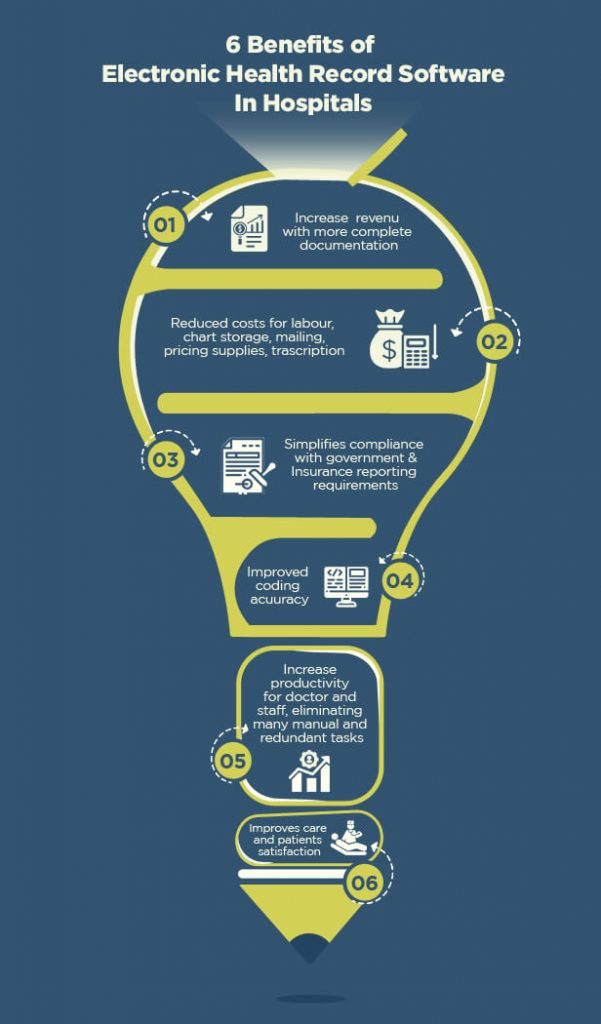
Effectively planned practice systems integration will improve the functioning of your healthcare organization. Integrated practice solutions will create a unified solution that would streamline your billing and appointment scheduling and enhance your communication with the patients. Integrated EHR with practice management will also provide you with medical records management solutions. There are five key benefits of incorporating an electronic practice management system –
Streamlined workflow across an entire organization: One of the topmost benefits of a quality EHR integrated practice management software is improved efficiency, especially in workflow and processes. Fast-paced healthcare environments greatly benefit from streamlined workflow because your team can achieve more in a day without any additional stress. Medical practice management solutions provide a standard system that increases performance efficiency, reduces chances of errors, and lowers patient waiting times.
Improved patient care:
Practice management and EHR organize the workflow, which reduces stress among the staff and healthcare professionals. As a result, healthcare providers have more time to focus on providing quality patient care. Practice management solution promotes healthcare automation that automatically manages appointment schedules, billing due dates, and reminds patients about their upcoming or due appointments.
Enhanced documentation and security: EHR integrated practice management solution offers you heightened security and productivity. Access to all medical records becomes easy and secure with practice management tools. Enhanced documentation due to EHR-integrated practise management software significantly reduces errors compared to manual paper works. Documentation works can be conveniently conducted via mobile or tablet through an EHR practice management software at the patient’s bedside or at a point of intervention.
Improved patient engagement: Increasing patient interaction is one of the key ways of promoting your medical services and increasing your income. Enhanced patient engagement also enhances the overall patient’s health outcomes. If your patients feel involved in their daily integrated care routines, they will actively participate in the care plans, follow-up sessions, and prescriptions. EHR integrated practice management systems can increase patient engagement by simplifying appointment scheduling and providing reminders. Moreover, physicians and other healthcare professionals can instantly access patient records and form quick decisions. Integrated practice solutions also allow healthcare professionals to give more focus and time to patients.
Complete Integrated electronic health records:
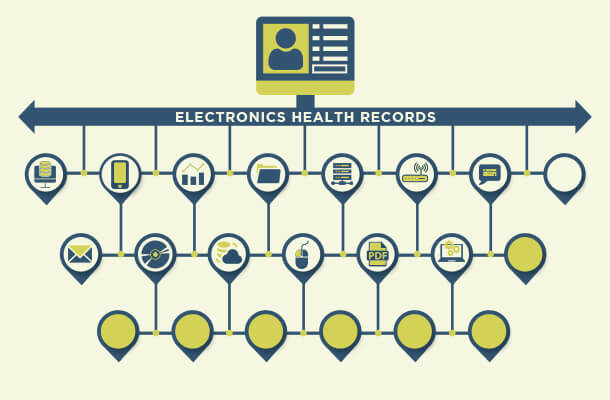
Integrated EHR is an essential component of any HIPAA compliant practice management system. Integrated electronic health records will cause your team to communicate patient data quickly and easily. Electronic practice management systems with integrated EHR assist with insurance verification, check their eligibility, and essential electronic interchange of data. Effectively integrating EHR/EMR software solutions with practice management solutions can allow practices to enhance any function for managing the practice, patients, and providers in a single system.
Conclusion
We recommend practice management for optimizing the workflow in your healthcare organization. With integrated practice solutions, you no longer need to enter patient data or client information manually. EHR integrated practice management software may pose challenges for you, but these can be overcome by implementing best EHR practices. It is important to standardize the format of the data stored to avoid any complications or errors. Additional measures such as reducing data silos, improving data quality with agile algorithms, cleaning your data and employing data acquisition and conversion would also help in successfully integrating EHR with practice management tools. Practice management will simplify the processes of recording, documenting, and keeping track of information. It will therefore provide you ample time to focus your attention on improving the quality of integrated care.
References:
https://www.gebauer.com/blog/medical-practice-management-system
https://www.apa.org/health/integrated-health-care
https://aboutdigitalhealth.com/2018/07/11/from-a-to-b-integrated-healthcare/
https://ihj.bmj.com/content/1/1/e000001
https://datica.com/blog/best-practices-for-successful-ehr-data-integration
https://www.mobifilia.com/best-practices-for-successful-ehr-data-integration/
https://www.healthcareitnews.com/news/implementation-best-practices-keys-launching-ehr
https://www.revenuexl.com/blog/benefits-of-practice-management-software
OSP is a trusted software development company that delivers bespoke solutions as per your business needs. Connect with us to hire the best talents in the industry to build enterprise-grade software.
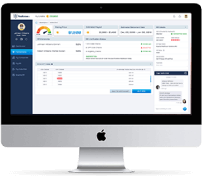
How can we help?
Fill out the short form below or call us at (888) 846-5382
Looking for software solutions to build your product?
Let's discuss your software solutions for your product in our free development acceleration call!
Get In Touch arrow_forwardDiscuss Your Project Handover with a team of expert Book a free consultation arrow_forward
About Author

Written by Riken Shah linkedin
Riken's work motto is to help healthcare providers use technological advancements to make healthcare easily accessible to all stakeholders, from providers to patients. Under his leadership and guidance, OSP Labs has successfully developed over 600 customized software solutions for 200+ healthcare clients across continents.







